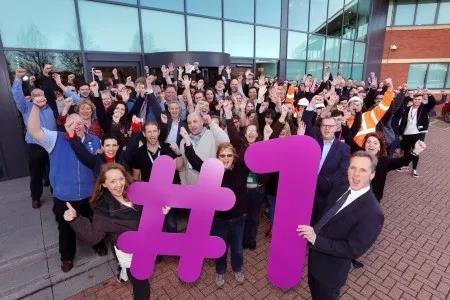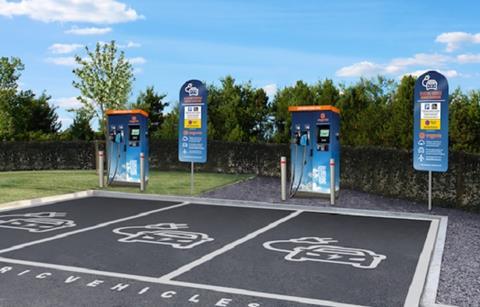Come September, there will be an outbreak of punditry with punning ‘20/20 vision’ headlines forecasting the property trends over the next decade.

Last November, the 25 funds and agents who contribute to the Investment Property Forum consensus forecast prophesied a 1.7% fall in cross-sector capital values this year, with retail down 3.9%. But don’t rely on these IPF numbers, not just because the retail guess is nonsense.
Looking back two decades, the contributors always underestimate capital value growth in upcycles and underestimate falls in downcycles. Because who wants to be an outlier? Staying in the crowd brings comfort.
Let’s try to be first with the 20/20 Vision report. What will the next decade bring? Health warning: I’ve only got two eyes and imperfect eyesight. But warning signs are showing on a couple of issues that will affect real estate over the next 11 years.
The first came from Serena Williams’ partner Alexis Ohanian, founder of Reddit, who at a US tech conference in November warned against ‘hustle porn’: “The glorification of working ridiculously long hours… It makes us feel important, ambitious, successful. We’ve thrown ourselves into the rat race… Staying late at work becomes a competition… If we’re still at our desks when the cleaner flicks the light off, we can’t help but feel a thrill.”
What has this to do with the price of office space? Well, those banking on developing groovy tech space to jam in youngsters working 15 hours a day in 50 sq ft of space, with only free coffee and table tennis breaks, might like to push the strategic rethink button.

‘Workers-moan’ site Glassdoor last month published its ‘best places to work’ ranking. Google fell from first to 13th in the UK, with Anglia Water (yes, Anglia Water!) on top. Apple fell from ninth to 43rd, behind IKEA and Dunelm (yes, Dunelm!)
Working in tech is losing its gloss.
Glassdoor says job hunters want ‘meaningful’ roles. What’s meaningful about grinding out code that allows an avatar to blast a zombie a nanosecond faster?
Electric dreams
The second and scarier signal of change is from this US headline in November: ‘General Motors to close five plants, lay off 14,000 workers and use the $8.3bn savings to invest in electric cars.’ The world knows electric cars are coming. Over 100 new models are due by 2020. By 2030, petrol and diesel engines will seem quaint.
There are short-term gains for the property sector, typified by M7’s partnership with Engenie to install 1,500 electric vehicle rapid-charging points at its out-of-town retail warehouse car parks by 2021.

The downside of fewer petrol points is already known; investors are already figuring ways to exploit the fall in filling station numbers. What has yet to be fully realised is the impact of the automotive revolution on anyone up to three degrees of separation from motor manufacturers. In the next decade, the likes of GM, Ford, Toyota, VW and Fiat face disruption on at least the same scale as industries reshaped by the web.
Again, there will be upsides for those who can advise on and facilitate real estate changes. But there are terrors ahead in the 2020s for those who a) hold real estate near car plants, b) rent space to dealerships or c) provide shelter and logistics space for the millions of parts brought together in assembly plants.
Look at how many spare parts there are in an electric car compared with a traditional model and tremble. Look at the forecasts showing a huge drop in the number of cars (as people hire, not buy) and scream.
Peter Bill is a journalist and author of Planet Property
2019 forecasts: what lies ahead
- 1
- 2
- 3
 Currently reading
Currently reading2019 forecast: decade of disruption beckons
- 4
- 5
- 6
- 7
- 8
- 9
- 10
- 11
- 12
- 13
- 14
- 15
- 16
- 17
- 18
- 19
- 20
- 21
- 22
- 23
- 24
- 25
- 26
- 27
- 28
- 29
- 30
- 31
- 32
- 33
- 34
- 35
- 36
- 37
- 38
- 39
- 40
- 41
- 42
- 43
- 44
- 45
- 46
- 47
- 48
- 49
- 50
- 51
- 52
- 53
- 54
- 55
- 56
- 57
- 58
- 59
- 60
- 61
- 62
- 63
- 64
- 65





























































































No comments yet